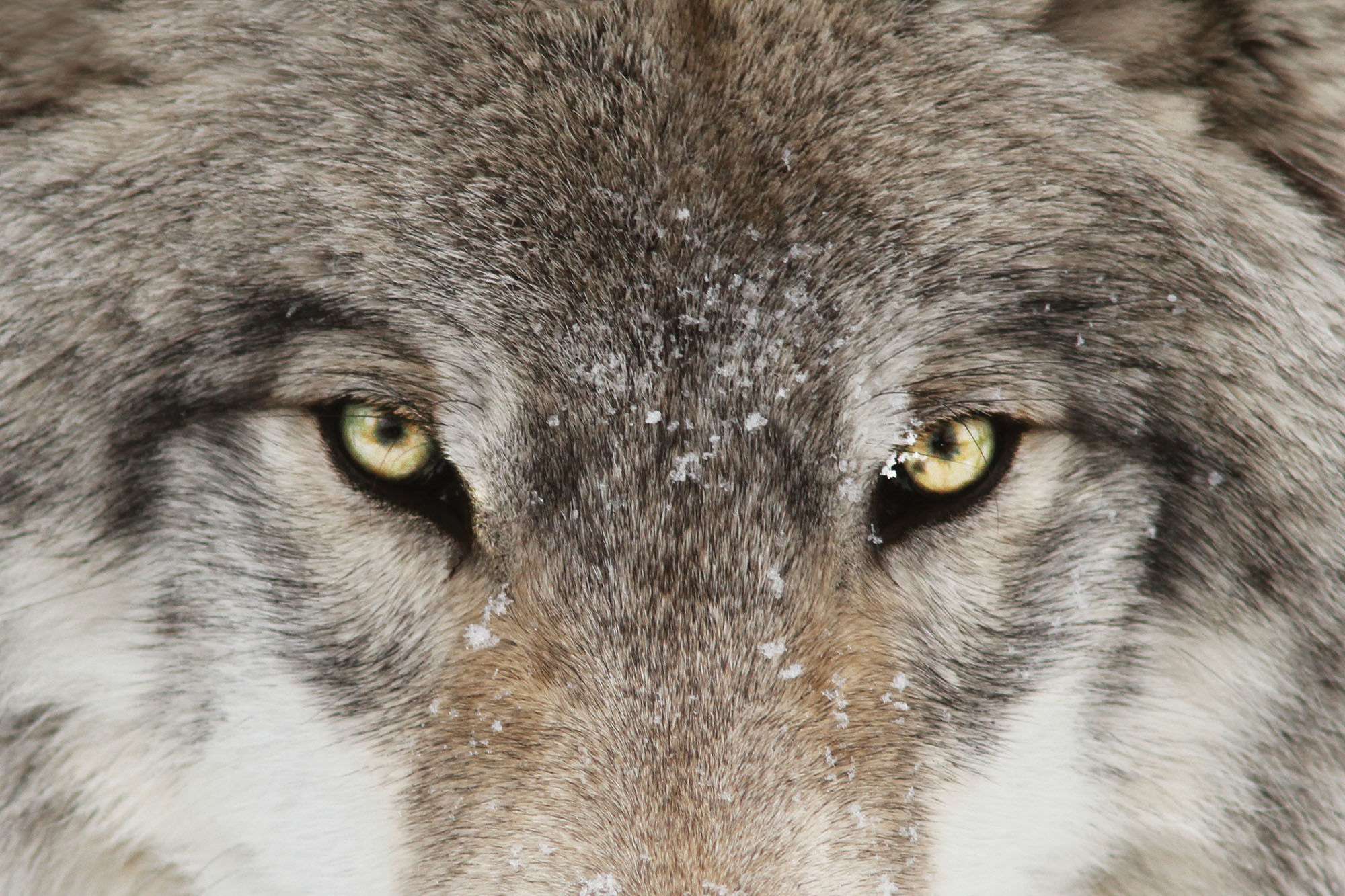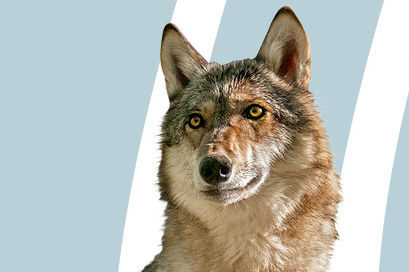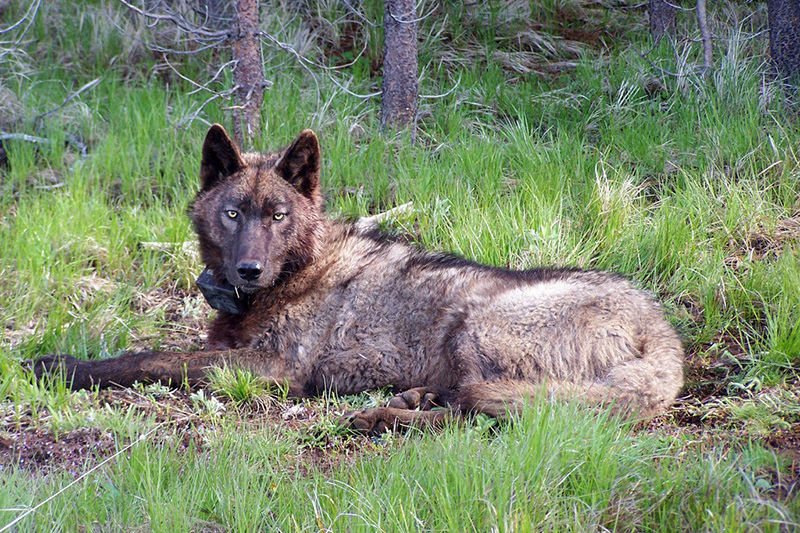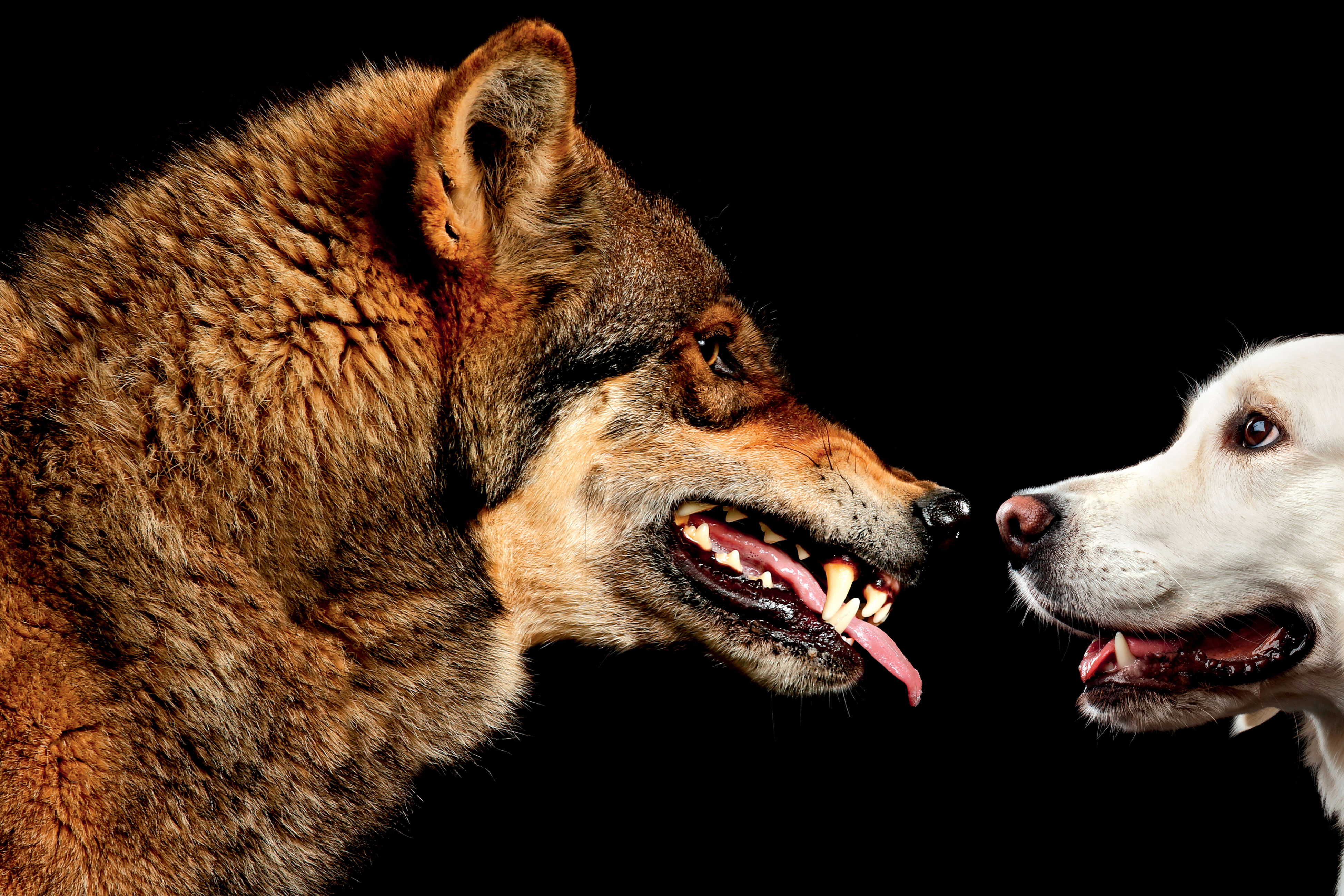Review: Wolfish, on the Complicated Legacy of the Divisive Species
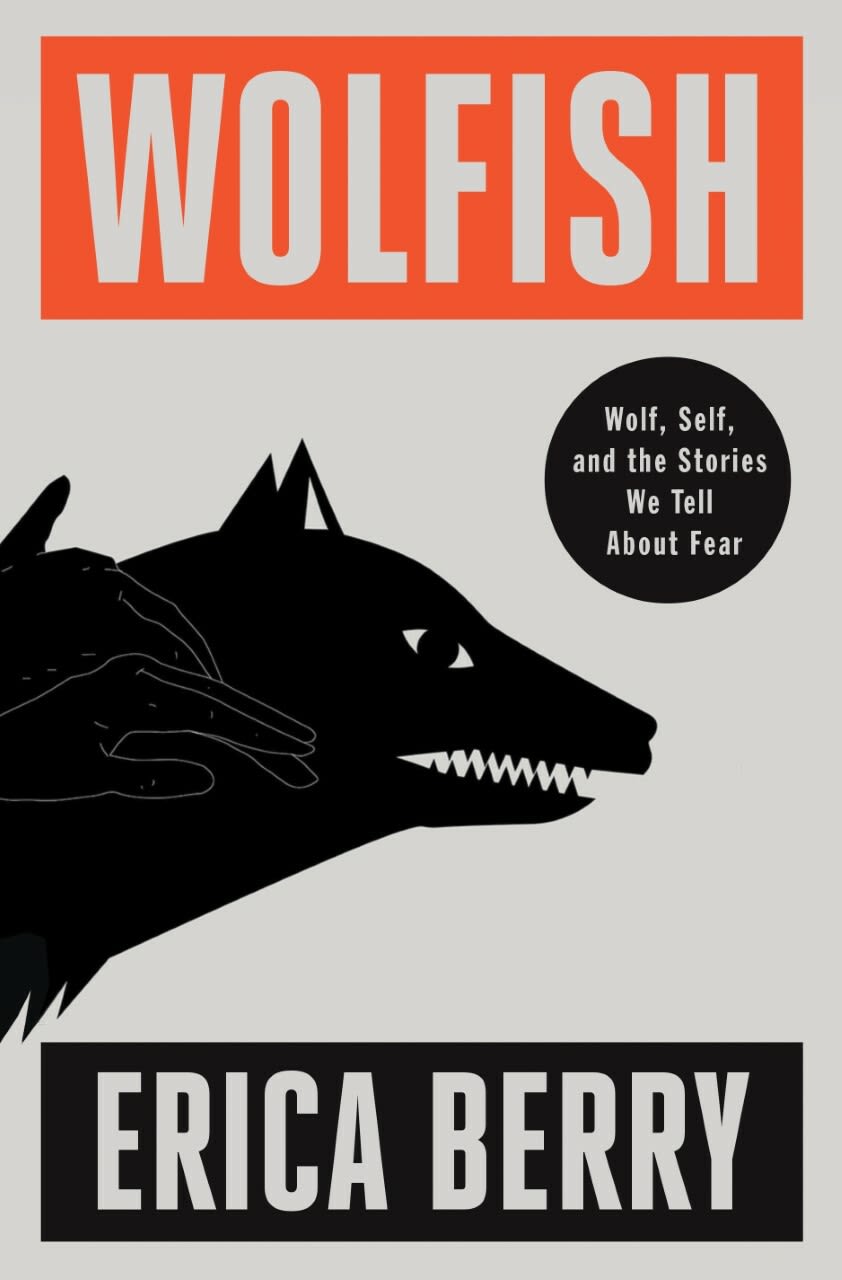
Wolfish is out February 21
Image: Courtesy Flatiron Books
In the right hands, “Little Red Riding Hood” can say a lot about the dynamics of modern society. Portland author Erica Berry’s debut book, Wolfish (out February 21), uses the fairy tale to trace back gendered ideologies and fearmongering tactics as old as time. She collages her own experiences with potential male predators—you might call them wolves—and lupine tales both reported and fictional to probe intriguingly at the nuance of weighing anxieties against true fears. The other end of the spectrum being, of course, “The Boy Who Cried Wolf.”
The book also follows OR-7, the much-publicized first wild wolf to return to western Oregon after the species’ forced extinction from the region 50 years prior. Berry analogizes her own self-described “hero’s journey”—leaving Portland to attend college in Maine, and other adventures—an act she points out is absent from tropes of a woman’s life. Joseph Campbell’s phrase, she writes, is “the scaffolding [that turns] a boy into a man,” giving examples from Hercules to Harry Potter. How does a girl turn into a woman? “It happens to her. Nature does it to her,” she excerpts from an interview with Campbell himself.
Trailblazing withstanding, Wolfish embraces the confines of being a relatively quotidian story. Berry describes her own life as privileged but normal. The great OR-7, her tandem protagonist, she admits, is really special only because he was tracked. Other wolves were doing their wolfish things and claiming new territories; other young women were traveling and following passions while gauging the requisite amount of caution with which to approach every given situation. But normalcy is precisely the point: to shed light on the space between stories and lived realities.
The book adopts a French proverb as its anthem: entre chien et loup, “between dog and wolf.” The French use the phrase to name situations where the light (literal or metaphorical) makes deciphering friend from foe, dog from wolf, difficult. It’s from this in-between state of hypervigilant ambivalence that Berry writes. “How much trust can you afford before it kills you?” she asks early on.

Erica Berry
Berry is an accomplished essayist and journalist, published everywhere from the New York Times Magazine to the Guardian to Outside to the Columbia Journalism Review; she has previously published several essays dealing with wolves.
Most of Wolfish adheres to its title, with folklore, journalism, extensive literary citations, pop culture callouts, political propaganda, and memoiristic passages bound together by their lupine adjacencies. The formula is logical enough—to fixate on a subject of some cultural weight, gather all that touches it, then iron the findings into a coherent meditation.
Being a hero’s journey, there must also be some end, some wisdom gleaned from the investigation, a transformation, the payoff of the bildungsroman. This effort, in fits and starts, examines politics of gender, race, environmentalism, colonialism, socioeconomics ... the entire world through a wolf-hued lens. What it arrives at is more of a disposition than an answer. Bottling the frenzied passion that only true obsession can bring about manifests as equal parts reparative reading of heavily slanted depictions of wolves, and an ode to empathy.
It’s worth noting that Berry wrote her college thesis on wolves. As the 36 pages of citations in the back of the book will let you know, she is well read, across literature, philosophy, biology. However, it’s not so much that she needs you to know about her scholarship, but that she can’t help but punctuate a thought with the words of Audra Lorde or Claudia Rankine. At times, these anecdotes can feel baggy, though they do land as earnest excitement more than performative intellectualism. Her sourcing is also incredibly diverse, citing everything from Amazon reviews to tweets to cheeky local reporters to Freud and Darwin.
Tracing back 100-year-old stories of American wolf trappers, historical speeches, and legends ancient and modern, Berry works hard to elucidate the evil knit into wolves’ legacy. “[T]rappers were paid not just for the token of the fur but for the perceived evil of the creature that once animated it,” she writes. “A wolf pelt could be a symbol of vanquished fear.” The power a wolf can hold eventually lands back on the thinking that creates lore, on the sociological point that our “systems become our stories.”
Berry’s own story is one of learning to reconcile fears, to hold the knowledge of the world’s evils and continue waking up every day. To that same end, she notes that wolves have long been sacrificed in vengeance for unpunishable tragedies.
Wolves in their natural state are blamed—and killed—for many things. But wolves of mythic, outsize proportions often do the psychological heavy lifting. Between human and wolf, of course, is werewolf, loup-garou—the insatiable beast often conflated with rabid animals. (From rabid wolf to occult, child-snatching werewolf is not a great leap.) Choose whatever image works for you; for Berry, Jack Nicholson’s fanged and mutton-chopped portrayal from 1994’s Werewolf does the trick.
Berry calls the werewolf a “vector of colonialism.” This transformation, and the subsequent scapegoating, Berry writes, perpetuates broken systems. “Often, it is only by anthropomorphizing animals and animalizing humans that the fictions which necessitate human borders can be propped up at all.”
You can’t kill a flood or fever, Berry writes, but you can kill a wolf. If you can pin a disaster on a supernatural wolf, their death can bring catharsis. “If smallpox was the invisible villain, the sick wolves were its physical manifestation.”
One version of “Little Red,” as Berry takes to calling the story, is followed by a passage explaining that, in fact, the literal wolf with the big eyes and teeth all the better to etc. etc. is a set of readily adaptable metaphors. Who knew? “Especially attractive, well bred young ladies, should never talk to strangers, for if they should do so, they may well provide dinner for a wolf,” explains the tale’s moralizing afterward. Further, beware of “charming, quiet, polite, unassuming, complacent, and sweet” wolves—“the most dangerous ones of all.”
Berry uses her own experience to illustrate how easy it is to bend the memory of an encounter with a predator, wolf or wolfish. “As a kid I grew a slight reputation as a chirpy exaggerator,” opens a passage of wolf reporting with “sanded edges.” Brief but traumatic encounters with dangerous men—an unstable addict on a train, a wanderer knocking endlessly at her door, an aggressive but pitiable drunk man outside of a rural bar—lead to asking when encounters warrant reaction, warrant crying wolf?
This writing from Berry’s own life is her most vivid. Swan’s wings are scallop shells under a fingernail moon; dusk is made up of the “pastel hours” of the day. Her peers conducting their own research at a London library are “professorial youth, with coral lipstick and Hugh Grant accents and little paper shots of espresso.” A volunteer at an English wolf sanctuary is a “septuagenarian with ivory hair spraying like uncorked Prosecco from his well-tanned skull.”
But when does a collection of curiosities, of scrupulously studied etymologies and scholarship on ancient legends and myths become something more? What do wolves have to tell us about ourselves?
Most everything in Wolfish hovers around the political. But several instances credit the animal’s vilified image to literal politicians. Theodore Roosevelt, ironically the man single-handedly credited with changing our nation’s perception of (Teddy) bears, leading to their protected status, is quoted calling wolves “black-hearted criminals.”
“You’re either with us or against us,” is a slogan Berry connects to everyone from Lenin to Mussolini to George W. Bush and Sarah Palin. There is no entre chien et loup, only dog or wolf.
She traces telling the difference between human and predator back to Reagan-era America. She quotes the former president addressing the International Association of Chiefs of Police explaining the presence of a “human predator,” adding the indelible image of wolf-as-embodiment-of-dangerous-man to the Reagan-created ideas still alive in our society.
“There were no blurry lines,” Berry writes, “just those who were helpless and those who were irredeemably bad.” Of course, the only systems we have for deciding on such binaries, Berry points out, are rife with institutionalized oppression.
Wolfish is out Tuesday, February 21. Berry will read at Powell’s that evening (7 p.m.) for the book’s launch, and chat with fellow Portland author Casey Parks.
